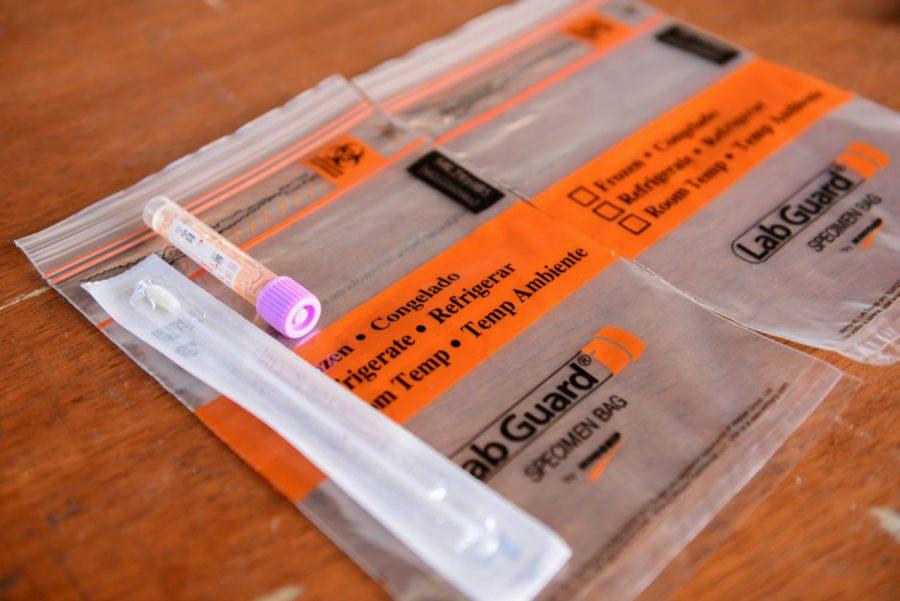Pitt to institute shelter-in-place Wednesday evening due to rising COVID-19 cases
March 31, 2021
Pitt will institute a shelter-in-place order and move to the middle Elevated Risk posture at 9 p.m. Wednesday, the University’s COVID-19 Medical Response Office announced.
The CMRO said in an email that the move is in response to a “consistent increase” in positive cases among students. With the presence of the highly transmissible U.K. variant B1.1.7. both on campus and in Allegheny County, the CMRO said it is “concerned” that this trend will continue.
The office added that it is “significantly” concerned that the increase in positive cases since the end of last week is now also among residence hall students — the CMRO said Tuesday that 13 residence halls had reported cases of COVID-19. Pitt spokesperson David Seldin said the potential for viral spread in on-campus housing is “of particular concern because of the large number of people living in close proximity.”
The shelter-in-place order will remain in effect until the CMRO announces that it has been lifted. During this period, the CMRO said students should only leave their rooms to “attend classes, labs or clinicals in person; pick up food; exercise safely; study in the library; work when necessary; and shop for essentials and medical needs.”
The email also said campus dining will be available via take out only beginning with Thursday morning’s breakfast service. Residence hall lounges, recreation rooms and kitchens will begin closing Wednesday evening.
Seldin said the University’s plans have been “carefully calibrated” to allow for activities that are both “critical to learning” and that Pitt has seen can be carried out safely. He added that Pitt’s operational postures are reviewed weekly or more often, as needed, and the University “will make adjustments as and when necessary.”
Data collected by The Pitt News. Original data collection by Ryan Yang, Online Visual Editor. Archival data by Spotlight PA and the Philadelphia Inquirer. Graph by Jon Moss, Editor-in-Chief.The CMRO has reported 30 new COVID-19 cases since Thursday, and 50 new cases in the report prior. According to the CMRO, large St. Patrick’s Day gatherings and the U.K. variant surfacing on Pitt’s campus caused the spike in cases.
Eric Macadangdang, the president of Student Government Board, said he hopes the move to Elevated Risk and sheltering in place will help mitigate the spread of COVID-19 on campus.
“Obviously this isn’t what any of us want, but it’s definitely what we need right now in terms of the numbers that we’re seeing and the relative new cases that we are seeing on campus,” Macadangdang said, “which I think necessitates making that risk posture change because it deals heavily on on-campus operations. So this is just not an off-campus situation anymore.”
Macadangdang added that the University’s senior leadership team, including Chancellor Patrick Gallagher, made the final decision to make the move.
“The resiliency steering committee was informed prior to the public announcement about the move, with the rationale behind it that the cases are remaining high, there’s the presence of the variant and there’s concern for cases to increase over time, especially within residence halls,” Macadangdang said.
Chris Bonneau, the University Senate president, said he is concerned that the shelter in place will be “insufficient,” and that if stopping the virus’ spread and protecting in-person commencement are top priorities, then stricter measures may need to be put in place.
“I understand that the classrooms are not a significant source of spread. But we do have significant on-campus spread now and the more people who … intermix, the likelihood is we’re going to have more cases,” Bonneau, a political science professor, said. “And now, maybe not, maybe this will be sufficient to curb the outbreak. But I prefer to be more aggressive.”
Seldin said Pitt has found “no evidence” of viral transmission in classrooms, labs or libraries.
Bonneau added that “there’s only so many bullets we have in our gun,” but new measures are now being put into place because the spread has reached students living on campus, where Pitt has more control over the living environment.
“Well, look … we could do more, right? We have not exhausted all options. I am very concerned by what is characterized as ‘widespread virus’ in our residence halls,” Bonneau said. “What are we doing, right? We’re trying to control the spread and contain the virus to protect the health and safety of both our students and the community. And sometimes that means we have to enact harsh measures that aren’t popular.”
Seldin said it was “too early” to determine what virus conditions will look like at the end of April, and that planning for in-person commencement continues. He added that Pitt asks students and families to “remain flexible” with their plans.
Contributed reporting by Ashton Crawley.



